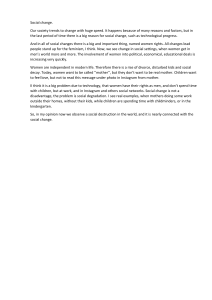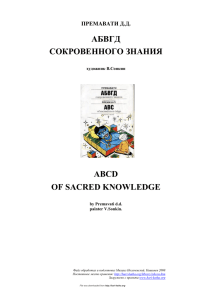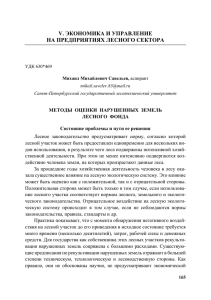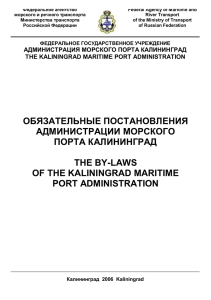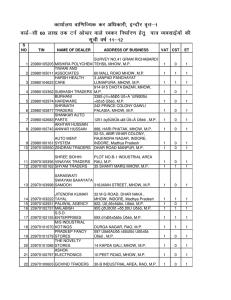3.7. методика экономического анализа человеческого капитала
реклама
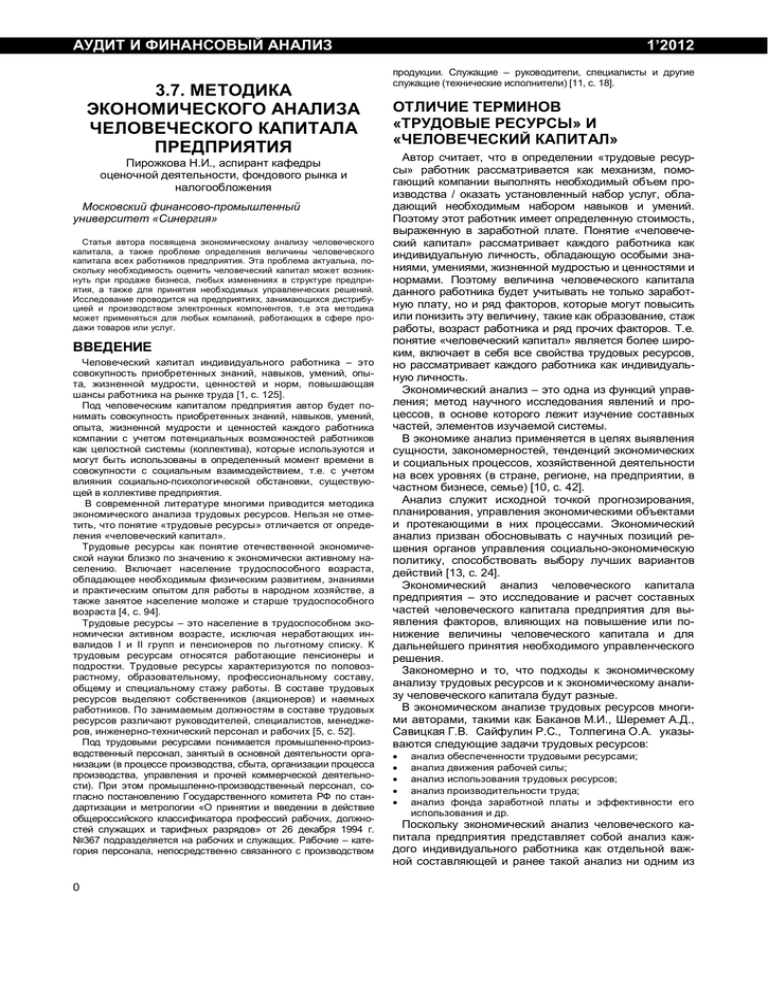
1’2012 . ( 3.7. – , ) [11, c. 18]. » » , ., « » , / « . , - , , » . « » , . , , . - , , , , . , , , - , , , - , , . . « . , - » , , , , , , , - – [1, c. 125]. , , , , ( . , , . ), , , , , . , ( , - . « , , - » « , , ) [10, c. 42]. , . , - ; . - ». , . , [13, c. 24]. , , – - [4, c. 94]. – , I , - II . . , , , . , - . ( . ) . , , [5, c. 52]. , - , , , , . , » 26 . 1994 . – - ., - : ; ; - « 0 ., , ). , ., - ( 367 , . ; ; . - . , 1 - , : ; - , ; - , ; - - . , - , ; ( . , - ) - - . 1). , - , ( . 2-5). 2 , - i ; - i 1 . , 1 , - . – i ; - 2 i , 1 . ( ) (annual expenses) – - ; 1 3 Ea n ( : , ); n– I (investment) – I (a) (annual investment) – 1 ; 4 Ia 1 n - , 1 ; - + ; n– ; 1 1 i ; - 5 . E , - 1 – 6 . i ; - E , 1 . 1 1’2012 , (es) (index of economical significance) – ; K (ed) – (index of education) – . 5; 7 - Kes Kes = Ked + Kw + Ka K(wa) (index of working experience) – , K(a) (index of employer’s age) – . , . . 4; . 3. , - , ( - ) K (q) (qualification index of all employees) – - 8 Ked n Kq - ; K (ed) (index of education) – . Ked (index of education) – . 5; ; n– , . , , - , . , S– ; – i - ; n– Si 9 Ei ni * Kq * Kes i; 1 i ; K (q) (qualification index of all employees) – - ; K (es) (index of economical significance) – , S (hr) human recourses – ; i - ; n– Si 10 - Shr i 1 Ei ( ni * Kq * Kes ) * * Ksc i; 1 i ; K (q) (qualification index of all employees) – - ; K (es) (index of economical significance) – ; K (sc) (index of employer’s social cooperation) – . - 2 . - . / - , , , i 11 i Shri Rhr ( ) i– i1 – Shri – Shri1 – i1 Shri 1 i i Shri 12 ; ; i , . i i1 – Shri – Shri 1 – i1 Shri 1 ; - . 1 - - i ; ; ; - i ; , 1 . 3 ». , - . , - , ( ,% 1 2 3 4 5 24 25-34 35-44 45-54 6% 62% 22% 4% 1% 55 , ). 0,8 1 0,9 0,7 0,6 . – 21 4 2002 . . . ( 1 2 3 4 5 0,6 1. 2. - ) - ( , 0,6 0,7 0,8 0,9 1 .–3 4-5 6-9 10 . , ). 3. ; , ( 5 - , ). 4. 5. . . , : 2011 2009 - . . 1 (5-9 ) ( (10-11 0,3 . ) ) - 2 ( ) . 0,4 0,5 ( 0,6 2011 ., . 25%), , - 0,7 2009 . 6-8). 0,7 0,8 , - 2011 . - 3 MBA 0,9 1 1 1 ( ) « 3 1’2012 6 « - - - - 4 ., 2010 2011 . 5 1 - 1 2 3 . 2010 . - E Ked Kw Ka Ked+Kw+Ka 2011 .) 1 » E Kq Kq Si 2010 . Si 2011 . - 2010 . 2011 . - 2010 . 2011 . 6 7 8 9 10 70 000 840 000 0,8 1 0,9 2,7 1 40 000 480 000 0,8 1 0,7 1 45 000 540 000 0,8 1 1 40 000 480 000 0,7 1 1 35 000 1 1 1 11 12 13 14 15 16 18 847 23 692 0,62 0,63 1 425 007 1 452 532 2,5 18 847 23 692 0,62 0,63 762 847 779 692 0,7 2,5 18 847 23 692 0,62 0,63 855 847 874 192 0,9 2,6 18 847 23 692 0,62 0,63 792 607 809 932 420 000 0,7 0,8 0,9 2,4 18 847 23 692 0,62 0,63 643 807 658 732 25 000 25 000 25 000 300 000 300 000 300 000 0,7 0,7 0,7 0,7 0,7 0,7 0,8 0,7 0,7 2,1 2,1 2,2 18 847 23 692 18 847 23 692 18 847 23 692 0,62 0,62 0,62 0,63 0,63 0,63 409 447 409 447 428 047 420 592 420 592 439 492 1 35 000 420 000 0,8 0,9 0,9 2,6 18 847 23 692 0,62 0,63 695 887 711 652 - 1 25 000 300 000 0,6 0,8 0,9 2,3 18 847 23 692 0,62 0,63 446 647 458 392 - 1 25 000 300 000 0,6 0,8 0,9 2,3 18 847 23 692 0,62 0,63 446 647 458 392 1 45 000 540 000 0,8 0,8 1 2,6 18 847 23 692 0,62 0,63 889 327 908 212 1 1 1 1 1 1 1 1 1 21 20 000 20 000 20 000 20 000 20 000 20 000 20 000 20 000 20 000 - 240 000 240 000 240 000 240 000 240 000 240 000 240 000 240 000 240 000 7 380 000 0,7 0,7 0,8 0,8 0,8 0,9 0,9 0,9 1 - 2,1 2,1 2,4 2,4 2,4 2,4 2,4 2,4 2,4 - 18 847 18 847 18 847 18 847 18 847 18 847 18 847 18 847 18 847 - 0,62 0,62 0,62 0,62 0,62 0,62 0,62 0,62 0,62 - 0,63 0,63 0,63 0,63 0,63 0,63 0,63 0,63 0,63 - - 1 - - - - - 2 1 2 3 - 3 1 2 - 4 1 2 3 4 5 6 7 8 9 : 0,6 0,6 0,6 0,6 0,6 0,6 0,6 0,6 0,6 - 0,8 0,8 1 1 1 0,9 0,9 0,9 0,8 - 23 692 23 692 23 692 23 692 23 692 23 692 23 692 23 692 23 692 - 331 327 341 212 331 327 341 212 375 967 386 572 375 967 386 572 375 967 386 572 375 967 386 572 375 967 386 572 375 967 386 572 375 967 38 6572 11 499 987 11 780 832 7 , ( « ») 1. 1 2 4 - 2010 . 2011 . 8,1 11,1 . . 2010 . 2011 . 0,29 0,43 . . . - 3 Ea 1 - 4 2010 . 2011 . n Ia 2010 . 2011 . + n 5 6 18 847 23 692 . . 7 775 787 7 877 532 . . E 2010 . 2011 . 152 165 . . E 2010 . 2011 . 5,4 6,4 . . 2. , - 7 Kes - Kes = Ked + Kw + Ka , . 6, 8 Ked n Kq 10 . 14 . 6, 13 3. 9 - Ei ni Si Si Shr 10 15 ( 2010 .) 2011 .) 16 ( Ei ni ( i 1 , .6 * Kq * Kes * Kq * Kes ) * 2010 . 2011 . - 11 499 987 11 780 832 . . * Ksc 4. - 11 Rhr - 12 i Shri i1 Shri 1 2010 . 2011 . 2,6. 3,7 i Shri i1 Shri 1 2010 . 2011 . 50,4. 78,5 8 « 1 - 2 « 2010 . 2011 . 8,1 11,1 0,29 0,43 » » , , 1 4 , - 1 1 5 - - - 18 847 23 692 7 775 787 7 877 532 2010 . 25%, - ( 6 152 - - ) 165 , . , 7 5,4 6,4 0,62 0,63 2010-2011 . 8 , - - , , , 9 - - 11 499 987 - 11 780 832 - . , , - 5 1’2012 1. ./ . . , 2006. [ , 2. [ .– 4. . - . ./ [ . 5. ] : - .: [ : http://slovari.yandex.ru/. ] : : http://ru.wikipedia.org. ]. – 3. . .– .: . 6. ] : , 2009. : [ ] / . . – 2004. – 6. // - ] / . . – 2005. – 3. ] : : http://www.ocenka.ru. // - . – 3, 2007. : - . [ 7. [ .– 8. . [ ]/ . , 9. . : ( 10. . .: 11. . . , 12. . [ . . ] / . // . – 2001. – . , . ] / 12. [ , / [ , 2005. .: 13. . . - )[ : http://www.e-college.ru. [ ] : . , . . – 2., , 2002. ]. – . .– . ] : . . / . ; . , . . .– .: , 2001. 14. Becker G.S. Human capital: a theoretical and empirical analysis / G.S. Becker. – N.Y., 1994. – 125 p. 15. Schulz T.W. Human capital: policy issues and research opportunities. – In: Human resources. – N.Y., 1975. ; - ; ; ; ; . . , , , - . , - , . , - . . , - , . , , - . : , - , . « 6 N.I. Pirozhkova, Earning Ph.D. Degree Moscow University of industry and finance «Synergy» The main idea of author’s dissertation is to find new methods of economical analysis of human recourses. Also author calculated cost of human capital. Research based on information from the sales and producing companies in field of electronic components. This subject is actual now because of many reasons: if owner want to sell his business he should know the price of human recourses who work in his company, also this information is important for manager for effective management and for HR department to brand effective hr strategy. Literature 1. M.I. Bakanov, A.D. Sheremet. The theory of economic analysis: a tutorial. Moscow: Finances and Statistics, 2006. 2. A.J. Kibanov. Foundations of Personnel Management. Tutorial. M.: INFRA-M, 2009. 3. A.F. Lyskov. Human capital: the concept and relationship to the other categories / / «Management in Russia and abroad.» 6. 2004. 4. A.D. Sheremet, R.S. Sayfulin. Methods of financial analysis M.: INFRA-M, 2005. 5. Human Resource Management: A Textbook for universities / Ed. T.Y. Bazarov, B.L. Eremin. 2nd ed. Rev. idop. M: UNITY, 2002. 6. Economics and Statistics Companies: Tutorial / V.E. Adams, S.D. Ilyenkov, T.P. Sirotina etc.; Ed. Dr. Econ. Sciences, prof. S.D. Ilyenkov. M.: Finance and Statistics, 2001. 7. T.G. Myasoedova. Human capital and competitiveness of the enterprise / Management in Russia and abroad, 2005, 3 8. G.V. Savitskaya. Analysis of economic activity: 3rd ed. MH.: FE «Ekoperspektiva», «new knowledge», 2007 [5] 9. V. Shchetinin. «Human Capital and the ambiguity of his interpretation of» // MEiMO. 12. 2001. P.42 10. G.S. Becker. Human Capital: A Theoretical and Empirical Analysis / G.S. Becker. N.Y., 1994. 125 p. [1] 11. T.W. Schulz. Human Capital: Policy Issues and Research Opportunities. In: Human resources. N.Y., 1975. 12. Large electronic encyclopedia. 13. http://ru.wikipedia.org 14. e-college.ru O. Tolpegina. Economic analysis: a training course (a training set) [4] 15. www.ocenka.ru Keywords . ., 3.7. METHODS OF ECONOMICAL ANALYSIS OF HUMAN RECOURSES ., « » Human capital; human recourses; economical analysis of human capital; determination of the value of human capital; estimation of cost of human recourses; the coefficient of the economic importance of the employees; the coefficient of qualifications of the employees human capital.
